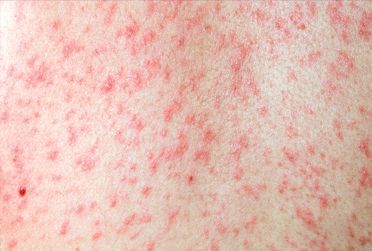Barco Scrubs Giveaway: Terms & Conditions
BARCO SCRUBS GIVEAWAY OFFICIAL RULES NO PURCHASE NECESSARY TO ENTER OR WIN. SUBJECT TO FEDERAL, STATE, AND LOCAL LAWS AND REGULATIONS. VOID WHERE PROHIBITED. 1. START DATE AND END DATE…
Nurses, Enter To Win Barco Scrubs (20 Winners!)

You deserve scrubs that show up the way you do and Barco delivers. We’ve teamed up with Barco to give away 20 full sets of iconic Barco scrubs to nurses…
Georgia Senate Amends Nursing Bill to Add Transgender Care Restrictions

Republican lawmakers in the Georgia Senate have advanced a bill that began as a measure to expand access to home health and nursing services and is now focused on restricting…
Violent Patient Attacks Nurses, Tears Oxygen Line & Starts Fire at Seattle Hospital

On February 15, 2026, a 29-year-old male patient caused over $100,000 in damages during a destructive rampage that included attacking staff and creating dangerous fire hazards at Harborview Medical Center…
Government launches fresh bid to boost measles vaccination levels

A new vaccination campaign has been launched today by the government in a bid to boost uptake of childhood immunisations in the face of rising cases of measles. The post Government launches fresh bid to boost measles vaccination levels appeared first on Nursing Times.
Retired nurses could form NHS ‘reserve service’ under Welsh Tories

Former nurses and doctors, plus other qualified volunteers, could be drafted in to provide cover for regular nursing staff, under plans set out by the Conservative Party in Wales. The post Retired nurses could form NHS ‘reserve service’ under Welsh Tories appeared first on Nursing Times.
Government launches fresh bid to boost measles vaccination levels
A new vaccination campaign has been launched today by the government in a bid to boost uptake of childhood immunisations in the face of rising cases of measles. The post Government launches fresh bid to boost measles vaccination levels appeared first on Nursing Times.
Nursing Tip of the Day! – Critical Care Nursing

Category: Critical Care Nursing Common ECG findings in pericarditis include diffuse ST-segment elevation and absence of Q waves. Although ECG findings for pericardial effusion are useful, echocardiography should be performed to confirm the diagnosis.
Community nurses to lead adoption of new EPR system in Shetlands
District nurses and other community nursing staff on the Shetland Islands are to begin using a new mobile electronic patient record (EPR) system, as part of ambitions to move away from paper. The post Community nurses to lead adoption of new EPR system in Shetlands appeared first on Nursing Times.
How changes to environment and lifestyle can be used to treat insomnia

It is important to adopt a holistic approach when helping older people who have difficulty sleeping. The post How changes to environment and lifestyle can be used to treat insomnia appeared first on Nursing Times.
